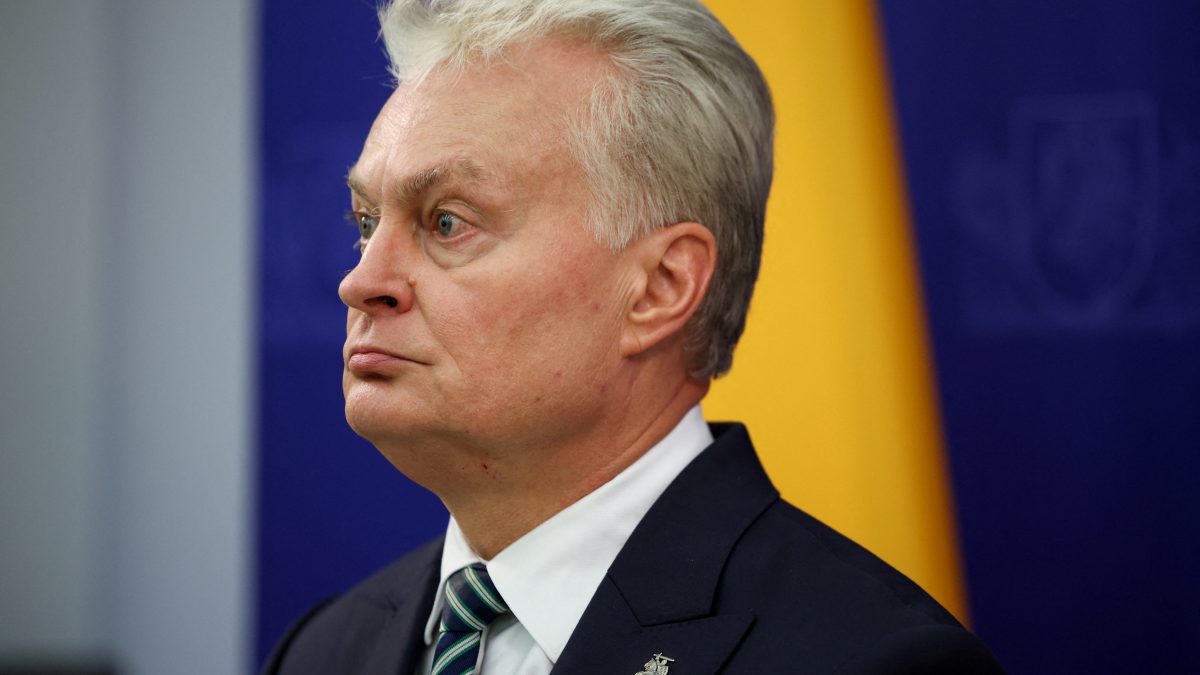Lithuania’s president has warned that Russia’s repeated airspace incursions are a deliberate attempt to test Nato’s unity and willingness to retaliate
Lithuanian President Gitanas Nauseda has warned that Russia’s recent airspace incursions are not accidental but calculated probes meant to test Nato’s readiness to retaliate. His message is blunt: Moscow is deliberately pressuring the alliance’s eastern flank to measure its unity and determination.
According to Naussda, these violations expose a dangerous reality — that hesitation or weak responses today could encourage Russia to escalate tomorrow, Bloomberg reports.
The president stressed that Russia is probing Nato’s preparedness, its commitment to defend borders and its willingness to take decisive action. For Nauseda, the solution lies in solidarity. He argues that the alliance must show not only awareness but also the political will to defend every inch of its territory. Anything less would embolden Moscow further.
Escalating Russian incursions
The latest flashpoint came when three Russian MiG-31 fighter jets penetrated Estonian airspace for 12 minutes, flying alarmingly close to Tallinn. The violation followed earlier incidents in Poland and Romania, suggesting a pattern rather than isolated events. Nato quickly scrambled allied jets, including Italian F-35s and Swedish and Finnish quick-response aircraft, to escort the intruders out.
Estonia denounced the act as part of a broader Russian campaign to probe Europe’s defences. It has since invoked Article 4 of Nato’s treaty, triggering consultations that could lead to reinforced military deployments. The United Nations Security Council also convened an emergency meeting to discuss the breach.
Baltic states on the frontline
President Naussda emphasised that the Baltic nations — Lithuania, Latvia and Estonia — are especially vulnerable. Their proximity to both Russia and Belarus, coupled with limited air-defence systems, makes them frequent targets of aerial provocations. Lithuania has already closed sections of its airspace near Belarus to strengthen control over drone and aircraft movements.
For Vilnius, Tallinn and Riga, these steps are defensive necessities rather than symbolic gestures. Nauseda insists that Nato must treat these violations as serious threats to the alliance’s external border and respond with coordinated measures. The credibility of Nato’s deterrence, he argues, depends on it.
Nato’s threshold for retaliation
The key dilemma for the alliance is whether to escalate its response. Poland has openly declared its readiness to shoot down unauthorised aircraft, reflecting how close the situation has come to a direct military confrontation. Earlier this month, Nato forces already downed Russian drones that entered Polish airspace — the first such action since the full-scale invasion of Ukraine began in 2022.
The precedent exists. In 2015, Turkey shot down a Russian bomber after repeated warnings, forcing Moscow to recalibrate. The question now is whether Nato is willing to take a similar step if fighter jets again cross its borders.
Washington’s role and Moscow’s strategy
Much hinges on Washington’s response. While Nato has launched “Eastern Sentry,” a reinforcement mission deploying extra air defences and fighter aircraft, US commitment remains decisive. Without a firm American position, Nato risks projecting hesitation.
For Russia, the provocations are strategic. They pressure Nato to shift resources to border defence while distracting from Ukraine. Estonia believes this diversion is intentional — part of Moscow’s broader effort to weaken Western support for Kyiv.
A test of alliance credibility
For President Nauseda, the issue is not only about national defence but also Nato’s credibility as a whole. He warns that silence or restraint in the face of repeated violations will invite more aggression. The Baltic states, already at the sharp edge of confrontation, see every breach as a test of whether Nato is reluctant or ready for a fight.
The stakes are high. A firm, united response could deter further provocations. But any sign of division risks undermining the alliance’s deterrence and emboldening Moscow. As Nauseda makes clear, this is not simply about airspace.
End of Article

)

